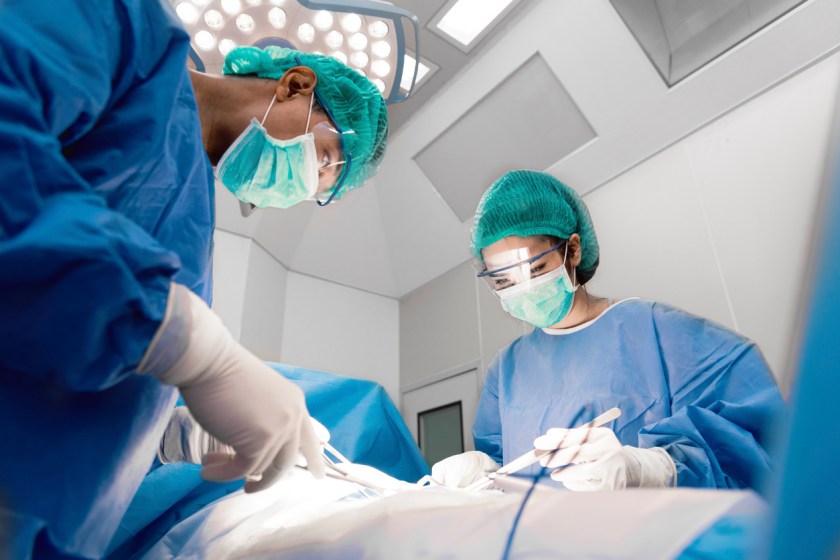The Australian Health Practitioner Regulation Agency (AHPRA) has announced a review of cosmetic surgery standards and sparked debate among cosmetic surgery specialists.
After decades of devastating cases of patient harm at the hands of “cosmetic surgeons”, Australia’s health regulator AHPRA has announced a review of patient safety — a step that the Australasian Society of Aesthetic Plastic Surgeons (ASAPS) has deemed “too little too late”.
This follows the news of a series of restrictions imposed on cosmetic surgeon Dr Daniel Aranov, a senior associate of controversial clinic owner Dr Daniel Lanzer, after a joint investigation by Four Corners, The Sydney Morning Herald and The Age uncovered a series of misconduct allegations against Dr Lanzer’s clinics, including serious safety breeches and procedures that left patients with long-term pain, months of recovery and further medical treatment. Until Dr Aranov was ordered to remove all social media posts by AHPRA, he was the most followed cosmetic surgeon with over 13 million TikTok followers. Under the restrictions, Dr Aranov is banned from all cosmetic and surgical procedures. In early November, Dr Lanzer agreed to stop practising as a medical practitioner in Australia.
The title of “cosmetic surgeon” has become a subject of debate among the medical community as it can be used deceptively by any medical practitioner without Australian Medical Council (AMC)-accredited surgical training, who is therefore ineligible for AHPRA registration as a specialist surgeon.
In Australia, AMC accreditation is the benchmark that provides a nationally consistent standard that patients can rely on for specialist treatment. It decides what specialist training is accredited, recognised and safe. AMC accreditation provides independent oversight of both standards of specialist education and ongoing compliance with ongoing professional education.
According to ASAPS, every day across Australia, the mass of harmful and life-changing patient outcomes can be directly linked to the misuse and misunderstanding of the title of “cosmetic surgeon” by practitioners who are not registered specialist surgeons.
“Every day, registered specialist plastic surgeons are faced with the task of correcting botched jobs performed by practitioners who hold out to be registered specialist surgeons,” says ASAPS President Dr Robert Sheen.
While AHPRA confirms it will be updating the codes of conduct and guidance, there is no reference to how they actually plan on monitoring it.
“It is time for AHPRA to exercise the responsibilities given to it under the National Law – a law that gives AHPRA the power to prevent patient harm in the first place. Instead, AHPRA is skirting around an issue that is exploding, without dealing with it at the source,” Dr Sheen continues.
More than 313 botched cosmetic procedures were reported in Australia in the last three years, resulting in patients lives and health put at risk both during and after procedures. AHPRA has recently released data that shows specialist surgeons from the Royal Australasian College of Surgeons (RACS) are responsible for the majority of botched cosmetic procedure complaints.
However, the RACS recently stated that they “do not cover cosmetic surgery” and that “RACS does not undertake training or accreditation in cosmetic surgery”. So, in addition to issues regarding the lack of training of plastic surgeons in cosmetic surgery, other RACS specialist surgeons receive no AMC-accredited training in cosmetic surgery.
Only 50 cosmetic surgeons in Australia have received formal cosmetic surgery training at the Australasian College of Cosmetic Surgery and Medicine (ACCSM), which includes a mandatory two years of dedicated cosmetic surgical training and examination. But there are more than 500 RACS plastic surgeons and an unknown number of non-ACCS qualified cosmetic surgeons who have received little to no dedicated cosmetic surgical training in Australia.
According to the ACCSM, this means that specialist cosmetic surgeons “learn by doing” and gain experience on unsuspecting private patients. It is this deception of the title “cosmetic surgeon” that prevents patients to make fully informed treatment choices.
ACCSM President Dr Patrick Tansley says the latest AHPRA data proved why Australia urgently needs a more defined set of guidelines and standards to regulate the competent and safe practice of cosmetic surgery.
According to Dr Tansley, these standards should be enforced alongside a publicly-available Register of Cosmetic Surgeons detailing those who have met and maintain the standard along with holding the true qualification of cosmetic surgeon to allow patients to make an informed choice among adequately trained surgeons. “The solution could not be any clearer or safer,” he says. “All competent surgeons providing cosmetic surgery who are concerned about patient safety should welcome its introduction.”
DID YOU KNOW:
There are 5 ways you can catch up with SPA+CLINIC?
- Our quarterly print magazine, delivered to your door. Subscribe here.
- Our website, which is updated daily with its own completely unique content and breaking news.
- Our weekly newsletter – free to your inbox! Subscribe here.
- Our digital magazine – click here to view previous issues.
- Our social media – see daily updates on our Instagram, Facebook & Linkedin





